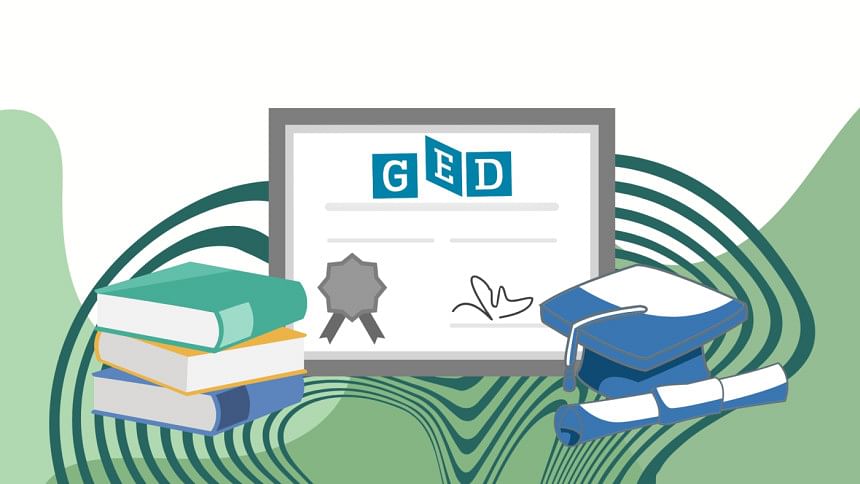Should you opt for the GED diploma programme?

The General Education Development (GED) diploma is a popular alternative to the traditional high school diploma. The GED testing system is administered under the American Council of Education and is an internationally recognised high school diploma. It primarily caters to students who are unable to complete their high school (grade 12) education or prefer not to take the conventional high school diploma route. But what precisely does securing a GED mean?
The GED diploma is the credential students get after passing its examinations. It shows that the student has abilities similar to those of a graduating high school senior or someone who has completed their A levels/HSC. The standardised test assesses knowledge in four core academic subjects and enables GED diploma holders to qualify for higher education.
Anybody who is at least 18 years old is qualified to sit for the GED diploma test. The exam is conducted electronically in selected testing centres across the country. In addition, the candidate has to be approved by an authorised GED prep provider before they can sit for the exam.
The cost of each of the four subjects is around USD 80 – required to be paid in full during registration.
Structure of the GED test
As we've already mentioned, the exam comprises four core subjects, of which students must demonstrate a strong understanding. The mathematical section of the test covers topics on algebra, geometry, and data analysis. It is called Mathematical Reasoning and is a 115-minute exam.
The second subject is Science, emphasising scientific reasoning and interpretation. The exam covers life science, physical science, earth science, and space science. This section is 90 minutes long.
The third subject is Social Studies, which focuses on critical thinking and document analysis skills. It is a 70-minute test that covers history, geography, government, civics, and economics. The fourth and final subject on which the test is held is Reasoning Through Language Arts (RLA). It is a 150-minute test which evaluates reading comprehension, language, grammar, and writing skills.
The GED scores examinees on a scale of 100-200 per subject. A minimum score of 145 on each subject is required to pass. If a candidate fails to meet this requirement in any of the four subjects, they can register again for the particular subject.
How to prepare for the GED test
There are quite a few ways students can prepare for the GED test, such as enrolling in GED classes conducted by certified centres in the countries. Students enrol in the courses which help them prepare for their upcoming exam by conducting additional trial tests at the end of the courses.
Many students also self-study with the help of available online resources, guidebooks, and other available materials. Furthermore, there are also other online programmes which help candidates prepare for the test.
Difference between high school and GED Diploma
A traditional high school diploma – that is, grade 11 and grade 12 – takes around two years to complete, while a GED diploma can be earned within a few months. When sitting for the GED test, candidates have the liberty to choose their examination dates, unlike with a high school diploma exam.
However, high school learning allows for a more in-depth and hands-on educational journey. Both diplomas will make the candidate eligible for university admission though. The most effective and convenient feature of the GED testing system is that it doesn't have an age restriction. Anyone unable to complete high school can take the test at any age and time, and secure the equivalence certificate.
Where is the GED diploma accepted?
Some foreign universities accept GED scores, including those in the UK, USA, Canada, China, South Korea, Japan, etc., for international students. Some competitive universities and majors may have additional requirements such as SAT/ACT, IELTS/TOEFL scores, or advanced coursework. For universities in Bangladesh, Universal College Bangladesh (UCB) and other foreign universities that have operational branches in the country, such as University College Sedaya International (UCSI), officially accept the GED diploma as part of their admission requirement.
Taking the GED test can be a worthwhile option for those who could not complete their high school education as well as for those looking for something other than HSC and A level examinations. Students with learning difficulties can also consider the GED testing system due to its short duration, concise coursework, and the flexibility it provides. The GED provides an accessible path forward with available study resources, practice tests, and official testing centres equipped to facilitate the standardised testing system.
Silwat Quader is majoring in Economics at NSU, reach her at [email protected]

 For all latest news, follow The Daily Star's Google News channel.
For all latest news, follow The Daily Star's Google News channel. 



Comments